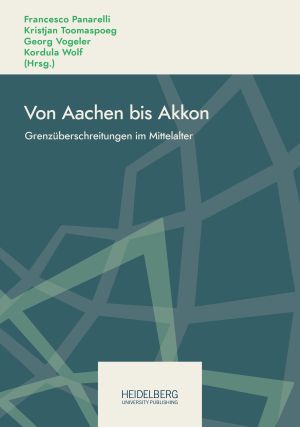Zitationsvorschlag
Lizenz (Kapitel)

Dieses Werk steht unter der Lizenz Creative Commons Namensnennung - Weitergabe unter gleichen Bedingungen 4.0 International.
Identifier (Buch)
Veröffentlicht
Oltre i confini della memoria. La corte di Alfonso il Magnanimo e il rinnovamento della storiografia umanistica tra Catalogna e Italia
Abstract Precise laws on the writing of history were set out in the „Actius“ by Giovanni Pontano, at the end of the fifteenth century. However, half a century earlier, in about 1445, at the Aragonese court of Naples, Lorenzo Valla and Bartolomeo Facio, two of the greatest humanists of that time, faced off in an important discussion fuelled by heated controversy. The connection between the description of contemporaneity, reflections on rhetorical forms and the need to celebrate and legitimize royal majesty had a great potential to flourish in that cultural milieu. At this court some historians were generously paid for their work, and this, in turn, led to their official professional recognition. It also led to the drawing up of precise rules on subjects, forms and methods for historical writing. The position taken by Facio was backed up by Antonio Beccadelli, known as the „Panormita“. He had a particularly sharp mind, and was an architect of the political ideology of King Alfonso the Magnanimous. He authored a work that deserves to be studied in depth, „De dictis et factis Alfonsi regis“, serving as a reference point for a particular form of ‚monarchical‘ Humanism, seeking to define the characteristics of an enlightened ruler.






